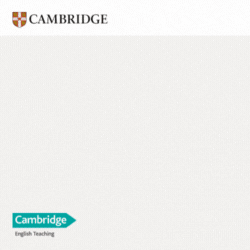Congratulations to the 219 undergraduates from 33 Australian universities who have been offered New Colombo Plan scholarships for 2025.
Scholars will spend up to 19 months undertaking study, language training and internships in 23 Indo-Pacific host locations.
Progressing the government’s commitment to double the number awarded is a 46% increase in 2024 scholar numbers and strengthens Australia’s capability in Asian languages. More scholars than ever are undertaking Mandarin, Japanese, Malay, Indonesian, Korean, Cantonese, Hindi, Thai and Vietnamese, among others.
Concurrently, the NCP Mobility program has offered 4,076 grants to 40 universities for projects across 30 Indo-Pacific locations. The Government is clearly enabling longer immersive experiences, with 40% of funded places in 2025 being for a minimum of a semester, in contrast to 18% during 2024.
The NCP is one in a suite of DFAT offerings within the People-to-people pillar. It supports Australian universities and undergraduate students to build Indo-Pacific capabilities. The left-hand menu bar on this NCP announcement is a testament to that, including; Public diplomacy, Sports diplomacy, the Australian Volunteers program, Indo-Pacific Broadcasting Strategy, the Direct Aid Program and Expo 2025 Osaka, Kasai. Universities and students might explore how these intersect with their NCP scholarships and projects.
People spending time with each other underpins Australia’s regional understanding, knowledge and capability. The continued maturation of the NCP and uplift in Australia’s rich Indo-Pacific engagement will germinate from fusing these DFAT initiatives and engaging the more than 2,500 Indo-Pacific host partners already co-designing and delivering the NCP.
The awards and grants are an early gift for university communications and marketing leading up to the break. As a sector, ensuring these announcements have traction beyond the dopamine-rich short-term social media cycle will enable longer systemic engagement. There is so much more at stake here than the student experience alone. The gift delivers a serious uplift in regional representation for universities (as does any learning abroad TKN 31 July 2023); so now is the time to explore the intersection with their alumni engagement strategy, support of industry and research partnerships and collaborations, design and delivery of TNE initiatives, alignment with careers and employability and with student recruitment planning.
Fresh off its 10-year anniversary the NCP already boasts a rich history fusing foreign affairs policy and education initiatives (TKN 14 Oct 2024). Globally recognised as an exemplar in learning abroad education strategy, government and industry engagement, NCP is redefining the art of scholarship in diplomacy. It has maintained branding and funding, held consistency of mission and delivery, traversed both sides of government and doubled down on the regional focus of the investment. It’s an annual $51m long-term play.
Now, the External Advisory Group, led by Minister Watts, is deep in deliberation through a sector consultation to guide future phases, reshaping NCP to lift Australia’s Indo-Pacific capabilities and literacy (TKN 21 Oct 2024). The NCP was an enabler of the national surge in learning abroad 2014-2019; at its peak driving almost 50% of students to learn abroad in the Indo-Pacific.
So, this announcement of 2025 outcomes, celebrated by DFAT as a ‘record number of New Colombo Plan awardees to develop Indo-Pacific capabilities and Asia literacy’ is part absolute (record number) and part aspiration (development).
The NCP is a beacon of regional engagement, not simply through education. The longer the NCP explores and enables regional host engagement, the breadth and depth of its impact and connectivity to industry, host communities, partner governments, and institutions will deliver on the aspiration expressed by the government. The NCP is an influential pillar within Australia’s education ecosystem. So, in what might be described as a tumultuous year for international education, building and supporting aspiration is critical.
A 50,000-strong alumni community welcoming 219 new aspiring scholars and 4,076 project grant recipients is evidence of that.
Read more about the New Colombo Plan here.

















